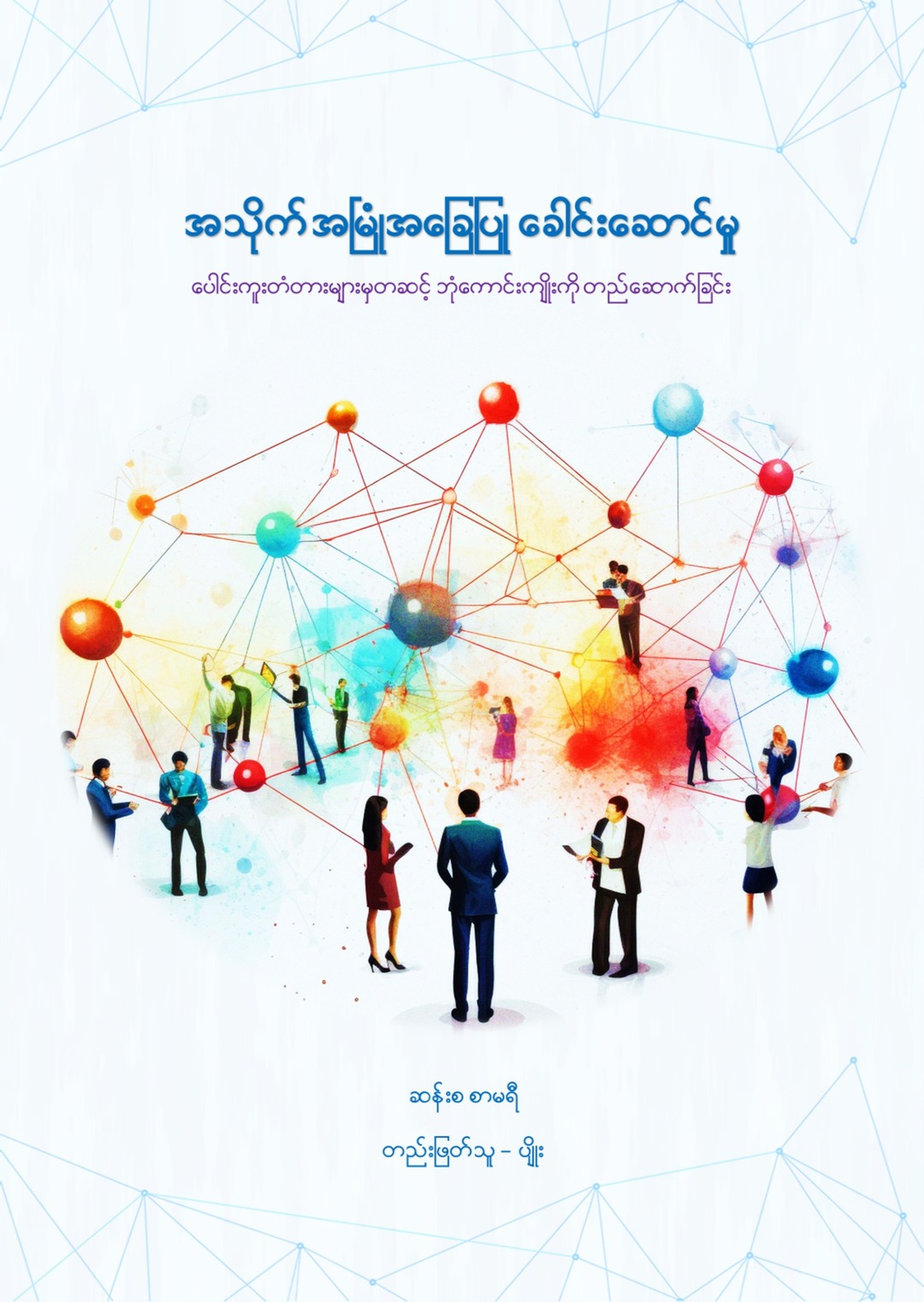We start with a simple question.
Why has Myanmar lacked a stable political agreement after nearly 80 years?
We believe that the core issue is a "Crisis of the Words and Crisis of the Worldviews." Different groups use the same political terms with fundamentally different meanings and incompatible foundational expectations.
Our solution is to foster political maturity through discourse analysis, research, education, and public dialogue on worldviews. We train indigenous youths and women and publish 5-level Explainers of Political Concepts to bridge moral and intellectual divides.

Published Books

ARTICLES
What is Politics?
Politics is not a monolithic concept. However, in order to work politics, how should we approach it?
Multinational Federalism
A call for Internal Realignment
Let's think about Life and Revolution.
Amidst Myanmar's intense revolution, individuals grapple with internal conflicts arising from decades of oppressive systems, leading to a need for profound personal and political realignment. This struggle manifests as people adopt "character" roles, causing dissonance and mental strain, highlighting the necessity for revolutionaries to reconcile their authentic selves with their activism.
The Indigenous Pride
Indigenous pride is a deep connection to history, land, and culture, representing resistance against oppression and the preservation of identity amidst attempts at erasure. Indigenous communities actively maintain their heritage through traditions, art, and stories, demonstrating that their power lies in their enduring connection to their roots, not in external validation. This pride serves as a beacon of hope, inspiring resistance against authoritarian forces and celebrating the strength found in cultural diversity and self-determination.
Primacy of Common Good
Today, the concept of Common Good is fading. But, if there is no Common Good, what is the point of us living together?
How to improve Democracy
There is no "perfect democracy" beyond human design. The only way to improve it is to recognize its shortcomings.
Lack of Accountable State
Myanmar's persistent ethnic conflict stems from a lack of a stable, unifying central authority, with successive "governments" acting as warring factions rather than legitimate state builders. This ongoing power struggle between military elites and civilian groups, coupled with the military's dominance and failure of civilian politicians to address ethnic grievances, has prevented the emergence of a trusted mediator, leading ethnic groups to reject state frameworks and perpetuate armed insurgencies.
Rethinking Burmanization
During the colonial era, the term "Burmanization" was initially used by the British as a simple process. It aimed to make the administrative machinery more practical for locals by utilizing the Burmese people and customs. However, over time, this process evolved into a more complex and deliberate strategy. When Burmanized, non-Burmese indigenous peoples become Burmese, but may not be fully so.



















